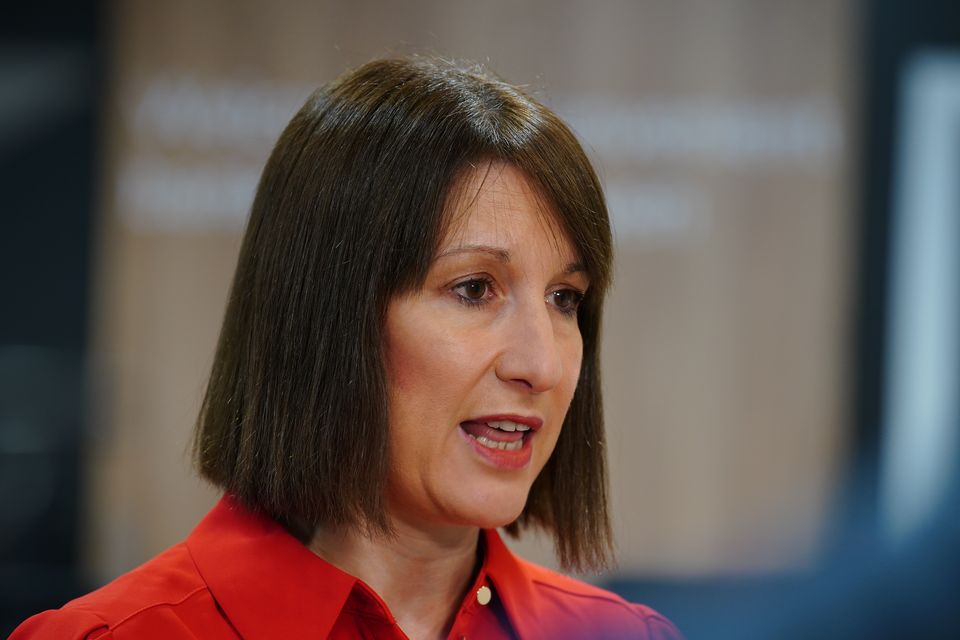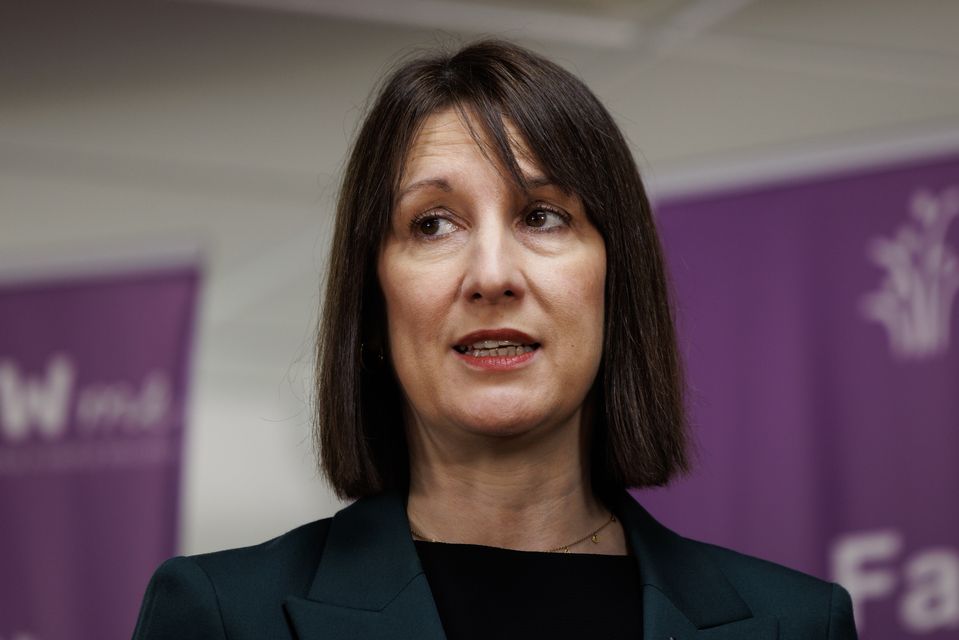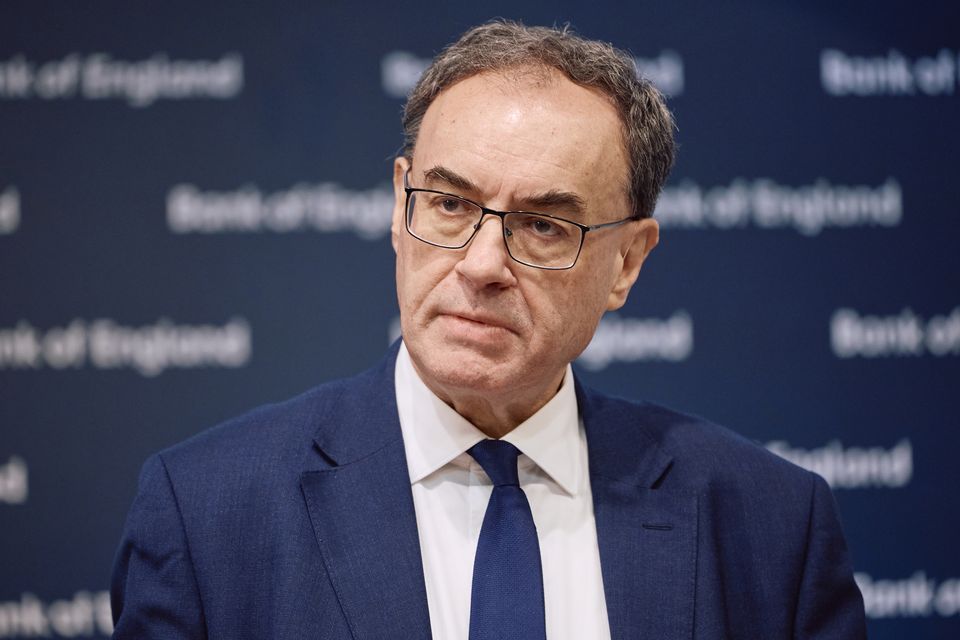Rachel Reeves has vowed to stand firmly behind her October Budget, insisting during a trip to China the fiscal rules laid out in the papers are “non-negotiable”.
Speaking during a visit to Beijing’s flagship store of UK bicycle maker Brompton, the Chancellor refused to be drawn into a discussion on recent turbulence in the global financial markets, telling reporters she will not alter her economic plans, with the Budget designed to return the UK to economic stability.
“Growth is the number one mission of this Government,” she said.
“The fiscal rules laid out in the Budget are non-negotiable. Economic stability is the bedrock for economic growth and prosperity.”
Chancellor of the Exchequer Rachel Reeves (Peter Byrne/PA)
Ms Reeves is in China in an attempt to build “common ground on trade and investment”, the Treasury said on Saturday, with the trip seen as Britain’s latest move by the Government to bolster ties with Beijing.
Ms Reeves will join in on a UK-China Economic and Financial Dialogue meeting in Beijing with her Chinese counterpart, Vice Premier He Lifeng on Saturday, to discuss trade and investment as well as raise “difficult issues” including the country’s support for Russia’s war in Ukraine.
She will later travel to Shanghai.
The Chancellor has said “choosing not to engage” with the Asian nation “is no choice at all” but said that Britain must also “speak candidly” in areas where “we disagree, including on democratic values and freedoms”.
When asked by reporters in Beijing if closer ties to China carried any risk for the UK, Ms Reeves said: “We need to make sure we have a pragmatic and good relationship with countries around the world. That is in our national interest.
Ms Reeves vowed to stand behind her October Budget (Dan Kitwood/PA)
“It’s what our allies around the world do and it’s what I will be pursuing as Chancellor; Always acting in the national interest while looking to help British businesses export overseas.”
The trip has been overshadowed by concerns over a rise in government borrowing costs after yields on UK bonds surged to their highest point since 2008, and the Tories have accused her of having “fled to China” rather than explain how she will fix the flatlining economy.
The Treasury has said that making Britain better will be “at the forefront of the Chancellor’s mind” throughout the visit.
Writing in the Times, Ms Reeves said: “We cannot ignore the fact that China is the second-largest economy worldwide and our fourth-largest trading partner, with exports supporting close to half a million jobs in the UK.”
She went on: “Choosing not to engage with China is therefore no choice at all. The UK must engage confidently with China in areas of trade that benefit the UK’s national interest and be equally confident in expressing our real economic and trade concerns to the Chinese, including market access and wider market-distorting practices.”
Ms Reeves later added: “This engagement also needs to advance broader UK interests. We must speak often and candidly with China where we disagree, including on democratic values and freedoms, Hong Kong, and support for Russia’s illegal war in Ukraine.”
Yields on 10-year gilts hit the highest point since 2008 on Thursday, at 4.89%.
It remained elevated throughout Friday, but did not surpass Thursday’s peak, and ended the day about three basis points higher, at 4.84%.
The yield on 30-year gilts briefly touched 5.43%, just below the peak of Thursday’s sell-off, which was the highest point since 1998.
By the end of the day, it had settled at 5.41%, about three basis points higher for the day.
It also marked a week of volatility for the pound, which slumped against the US dollar, while the American currency strengthened off the back of data showing its jobs market has been growing.
The pound hit a fresh 13-month low against the dollar and was down 0.7% by the time European markets closed on Friday.
Ms Reeves is said to be prepared to impose more severe spending cuts on departments if necessary to balance the books, having already ruled out increasing either borrowing or taxes, and The Telegraph reported on Friday evening that reductions in the welfare budget are being considered.
Andrew Bailey, Governor of the Bank of England, will join Rachel Reeves on her trip to China (Benjamin Cremel/PA)
Ms Reeves will be joined by Bank of England governor Andrew Bailey, chief executive of the Financial Conduct Authority Nikhil Rathi and senior representatives from some of Britain’s biggest financial services firms on her trip.
The UK Government has said its “reset” of relations with Beijing comes with the “firm recognition” that the two countries “will not, and do not, always agree”.
It has promised to “challenge” Mr Xi’s administration where necessary amid long-standing human rights concerns about the treatment of Uighur Muslims, constraints on freedoms in Hong Kong and its support for Russia’s war in Ukraine.
The increase in the cost of servicing Government debts could cut into Labour’s expected financial headroom in a potentially worrying sign of how investors see fiscal sustainability in the UK.


